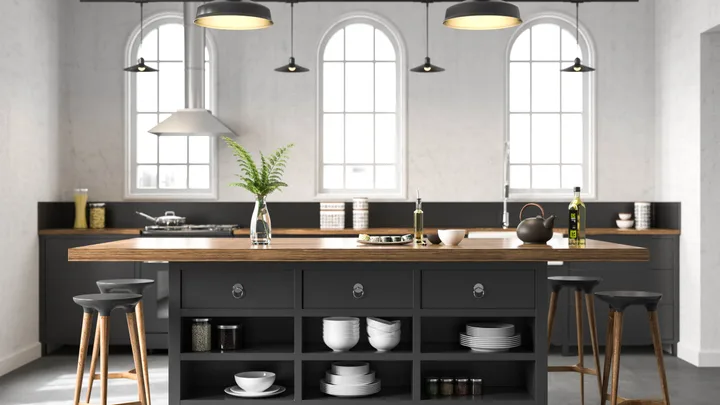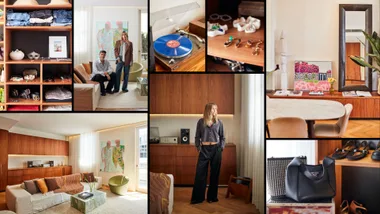The industrial look has been around for centuries, but initially, it was never a “style” at all. Or at least, it didn’t set out to be.
In the 1700s, the industrial revolution hit, and the world was changed forever. Factories sprung up all over major cities in Europe and America. These large buildings were simple, functional, and utilitarian. They had huge windows to let in natural light and an open plan floor space. To save money and minimise fire risk, most were kept plain – no paint, and with bricks, pipe, and ductwork left completely exposed.
RELATED: Six Ideas for Sprucing Up Your Interior
Two hundred years later, advancements in the construction industry allowed us to make bigger, better, and more efficient structures. The old factories closed down, giving way to modern manufacturing plants on the outskirts of the city.
But the factories wouldn’t stay abandoned for long. In the mid-20th century, many of these spaces were revived. Not as factories, but as housing.
Thus, the “industrial chic” look was born. Interior designers worked with the exposed brick and metal to create spaces that were bold, edgy, and could blend with any style.
Here’s how you can achieve the modern industrial style in your kitchen, bedroom, or the entire home.
Exposed Piping
In most homes, exposed pipes and structural beams would be plastered over, covered up, and painted before you even move in. But with industrial house design, you can skip that last step and save on money and stress – just ask your architect. Exposed piping and ductwork is a staple of the industrial style.
And contrary to what some people believe, it isn’t messy at all. It’s authentic, raw, and captivating.
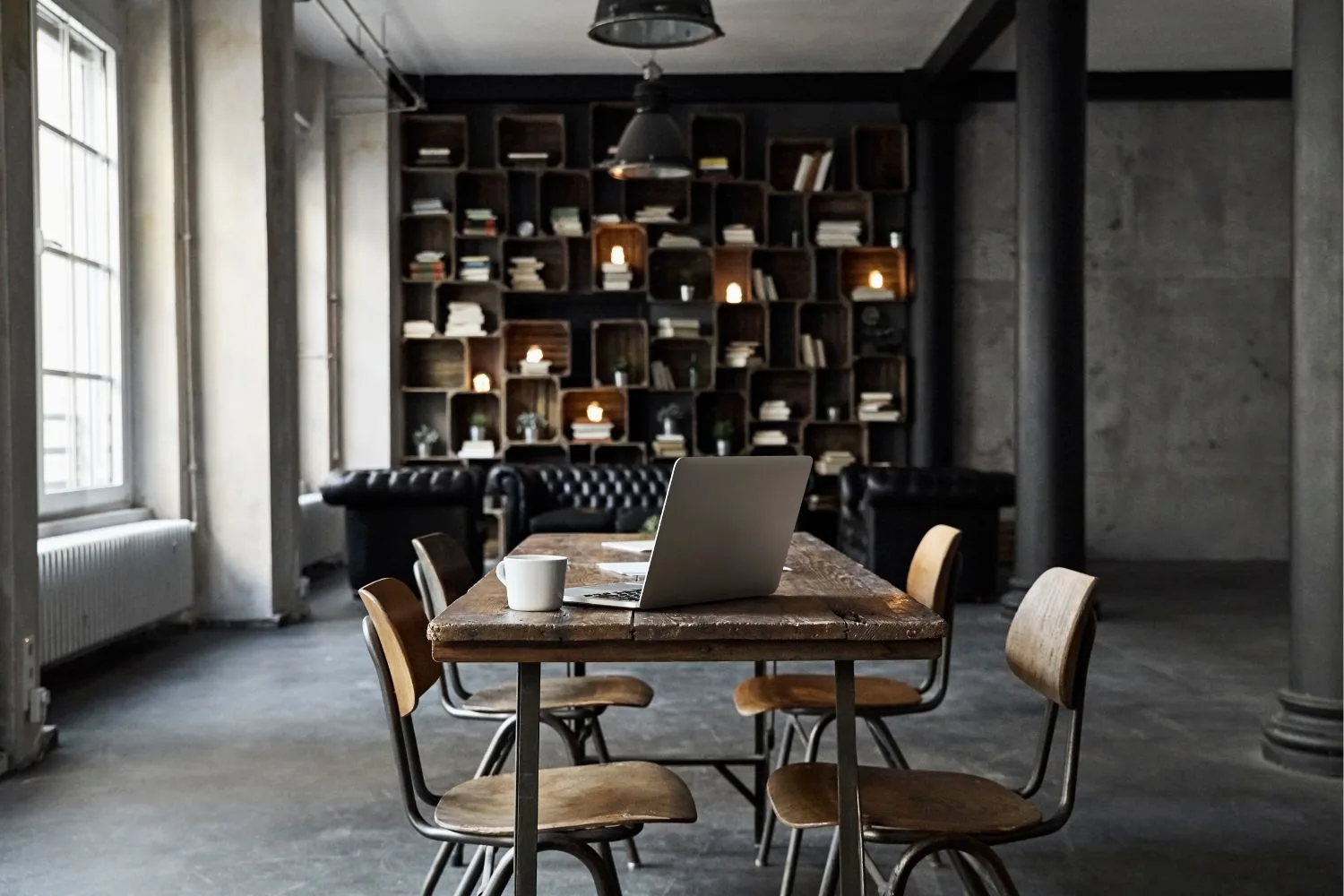
Concrete Or Brick Walls
One of the easiest ways to achieve the industrial vibe is by leaving your concrete or brick walls just as they are. No paint or plaster necessary.
A bright red brick provides a gorgeous background to your interiors. It pairs well with black metal and deep orange-red woods.
Concrete, on the other hand, is a blank slate – literally. You can match it with neutrals like grey or brown, or you can experiment with contrasting colours. And the best part? You can achieve the look even if your walls are already painted. Check out online tutorials for how to paint a faux concrete wall finish and you’ll find dozens of easy DIY guides!
Industrial Shelving
What do you get when you combine wooden planks and metal pipes? Chic industrial storage solutions for your home.
Open shelves like these are a great way to display your knick-knacks and show off your personality. You can even make an unorthodox bookshelf with a little bit of ingenuity. Plus, you can even do it yourself at home with $50 and a quick trip to the hardware store.
Edison Lights
Get it right, down to the details. Industrial-style lighting can come in many forms, most of which are old vintage lamps making a comeback. But the most popular style by far is the Edison light. These filament bulbs from the 20th century give off a warm yellow-orange glow.
You don’t have to swap out your energy-efficient lights for century-old bulbs, however; there are many LED versions in the same vintage style. Hang it loosely via its wires or frame it in metal to get the look you’re going for.
Recycled Furniture
Just as farmhouses and factories were recycled into homes, you too can continue on in that tradition and recycle!
Reclaimed wood, broken pipes, old tools, damaged stop signs, and all sorts of other “junk” can be fashioned into modern furniture, just like this industrial-style desk.
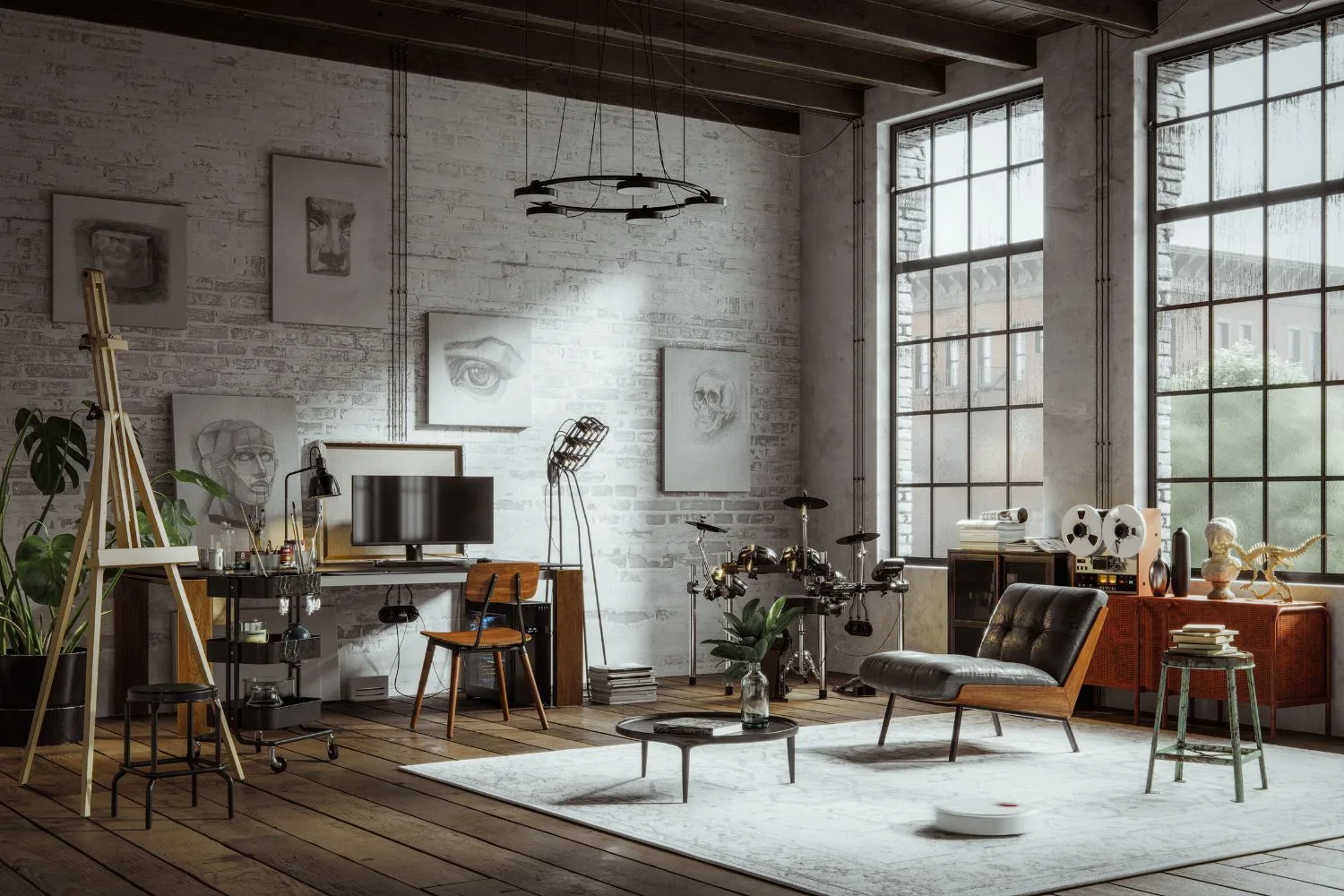
Kitchen Island
We’re seeing a massive boom in industrial-style kitchens in restaurants, cafes, bars, and homes too.
If you have the space, recreate the same feel in your very own kitchen by adding an island made of concrete, glass, wood, steel, or a combination of all three materials. Throw in a few bar stools and it will double up as a dining table!
Pop Of Colour
If industrial home decor in browns, whites, blacks, and greys are quite common, it’s because it works.
The industrial chic aesthetic is practically defined by its lack of glamour. It’s fuss-free, modern, clean, and streamlined. But that doesn’t mean you should shy away from colours. In fact, with all of the muted shades, you can afford to brighten up the space with splashes of colour here and there.
Contrasting Styles
Mix trends and break the visual monotony! Balance the quiet, cold minimalism of the industrial look with warm rustic touches, flamboyant French decor, or loud bohemian pieces.
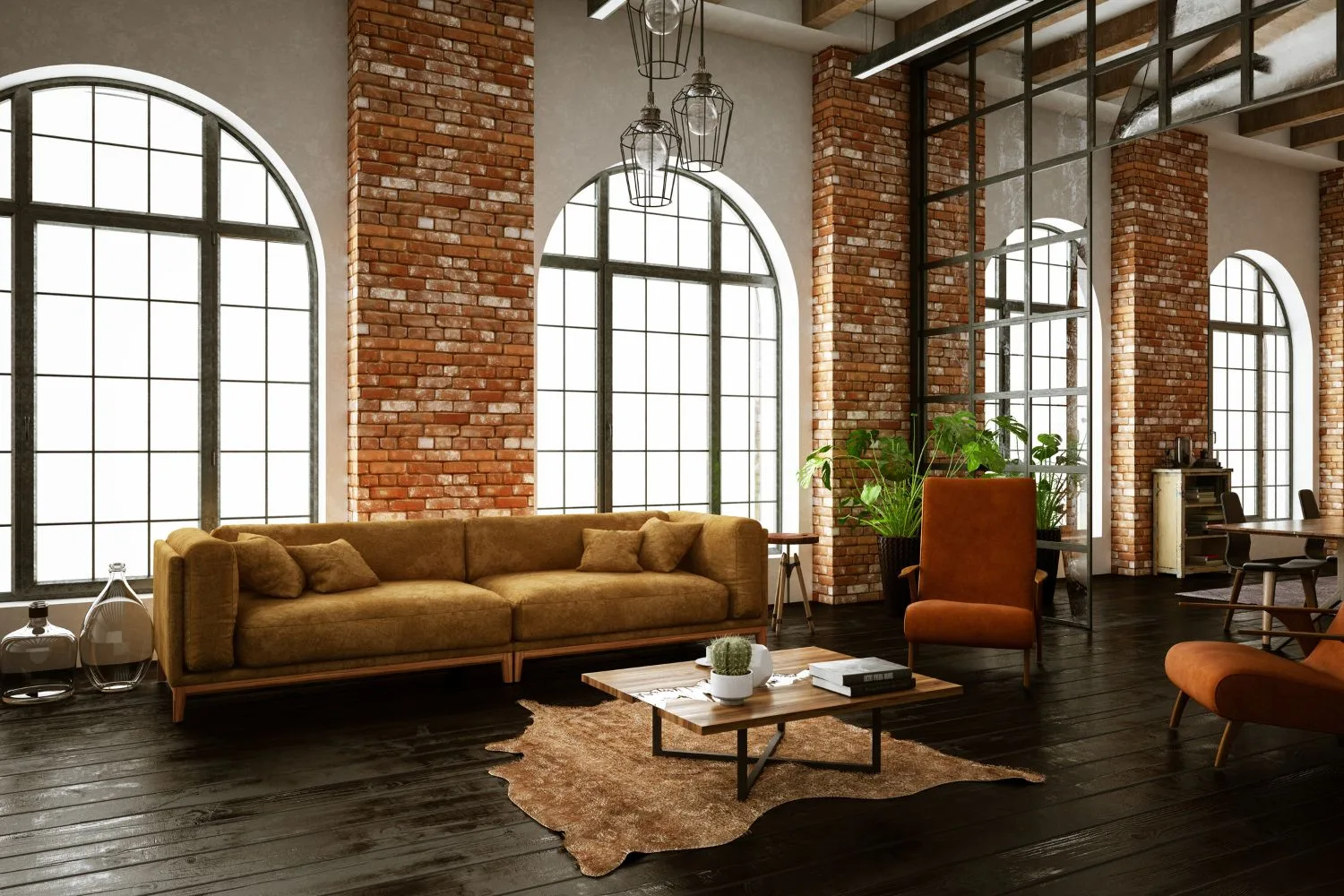
Loft House
The loft-style house is ripe for industrialising. The design has always worked best with wide open spaces and high ceilings – just like the original factories the style was based on.
Industrial Bed
Want a beautiful, industrial-style bedroom? It’s pretty much as easy as adding a wrought iron bed. Decorate with other vintage touches like old picture frames, books, clocks, and a romantic flower vase.
Conclusion
The industrial look has come a long way from its roots in 18th-century warehouses. Some say it looks unfinished, but it’s this laid-back and effortless vibe that makes industrial interior design so popular today.
RELATED: 7 Design Lessons From Australia’s Most Lust-Worthy New Interiors
Shop The Industrial Look
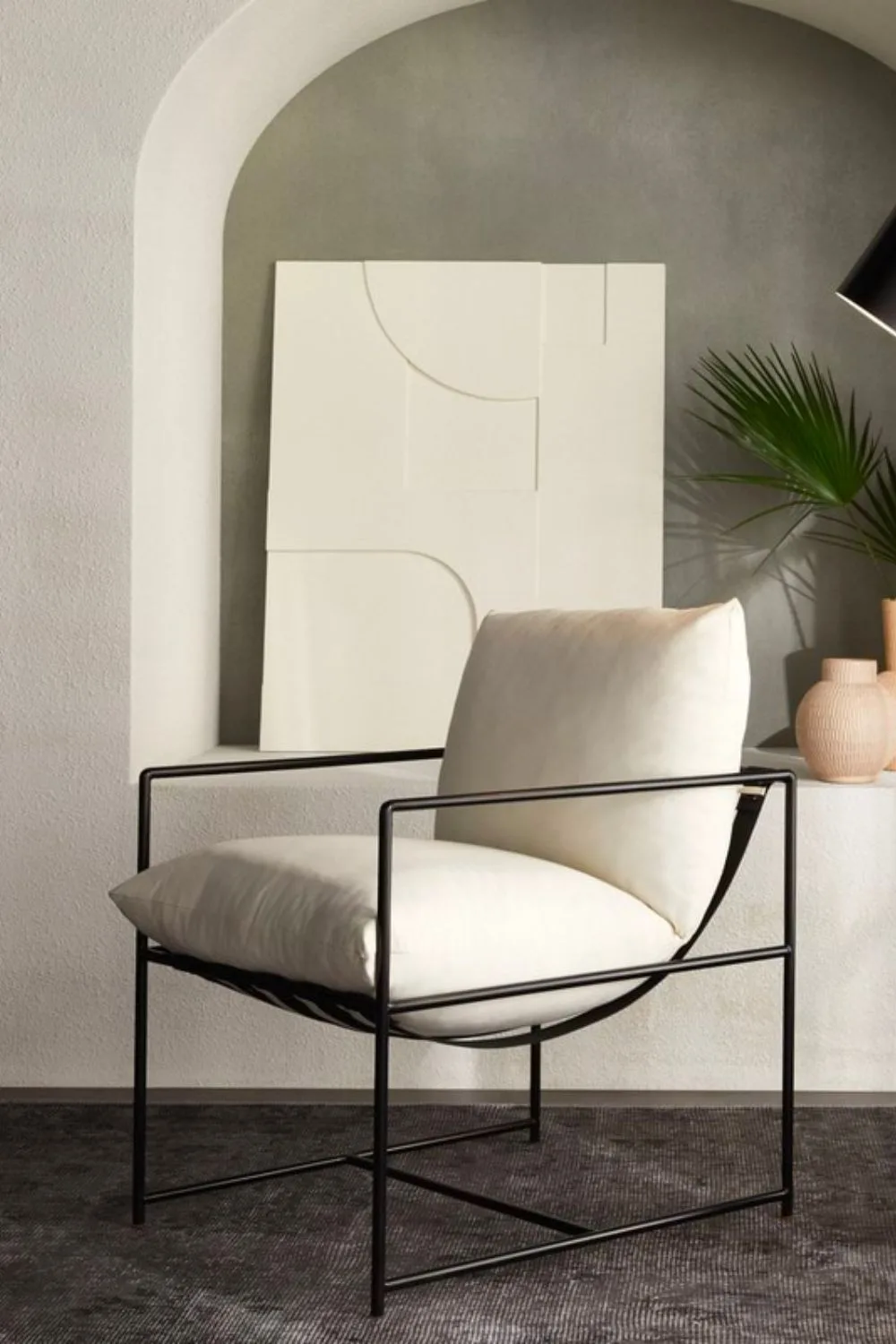
JIMMY Occasional Armchair, $899 from Freedom
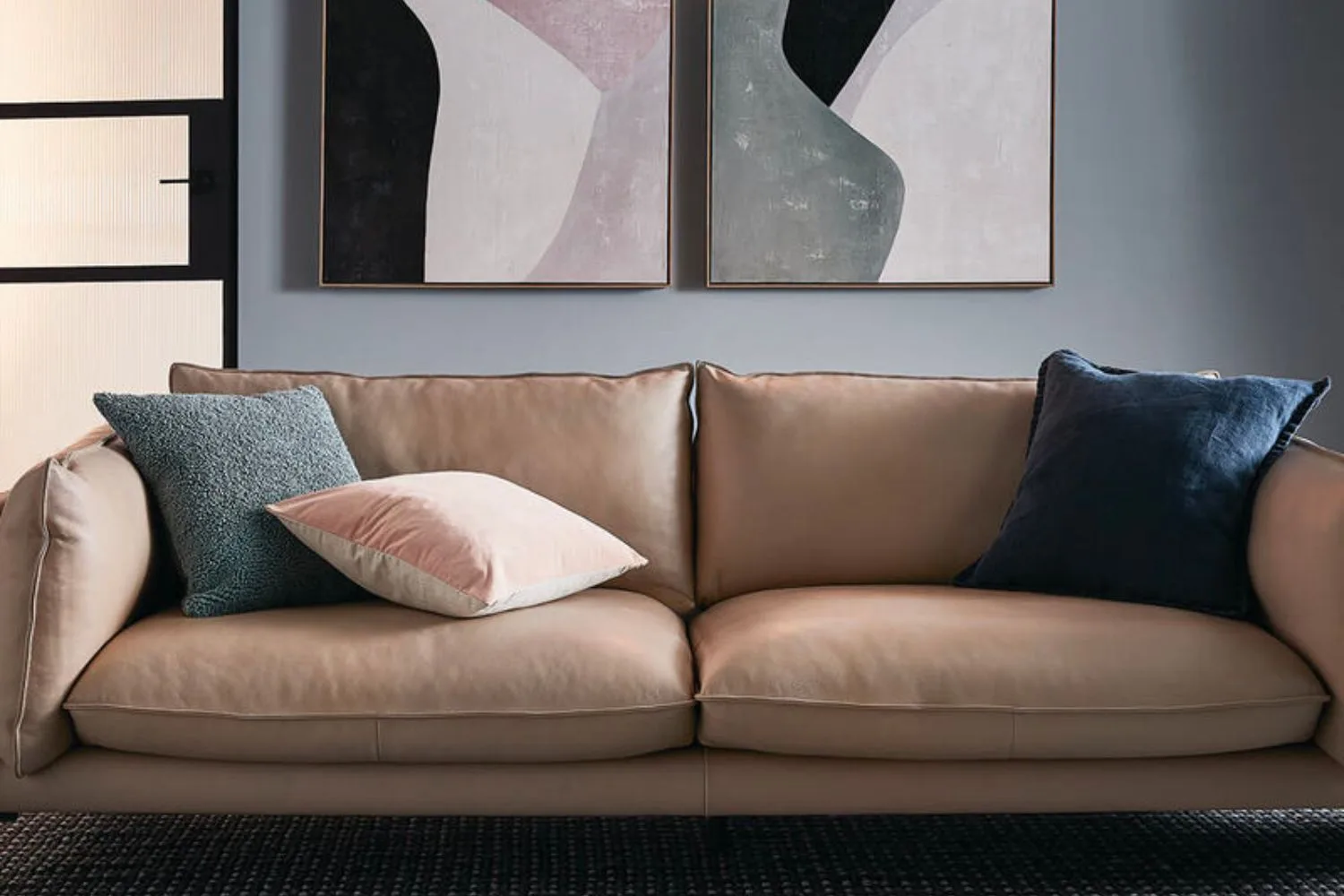
PANAMA Leather Sofa, $2999 from Freedom
